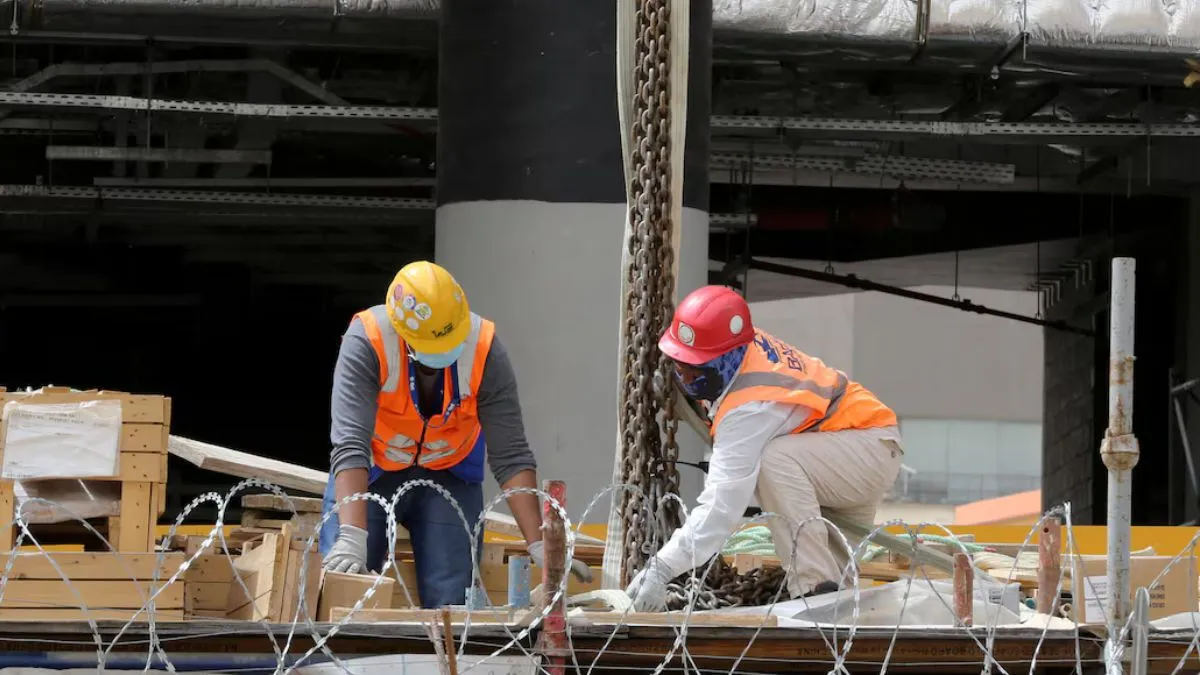- By Shivangi Sharma
- Wed, 22 Oct 2025 09:08 PM (IST)
- Source:JND
Saudi Arabia has officially abolished its 50-year-old Kafala labour sponsorship system, long criticised as “modern-day slavery.” The system gave employers (kafeel) extreme control over migrant workers, including the power to seize passports and restrict job changes or travel. The move marks a new era for migrant rights across the Gulf. The reform, hailed as a “historic move,” is set to improve the working conditions of nearly 13 million migrant workers, including around 2.3 million Indians. For decades, the Kafala framework governed the employer-employee relationship in the Gulf, often resulting in exploitation, restrictions, and human rights violations.
What Is Kafala Labour System?
The Kafala system, introduced in the 1950s, was designed to supply affordable labour to Gulf countries during their economic boom. Under this system, a foreign worker’s legal status was tied to their employer, or kafeel (sponsor). Employers had control over workers’ mobility, job changes, and exit permits, essentially deciding whether they could leave the country or seek legal recourse.
ALSO READ: Uganda Bus Tragedy: 63 Killed In Worst Motor Accidents In East African country
Though initially intended to facilitate labour recruitment, the Kafala system became synonymous with exploitation. Employers often confiscated passports, delayed wages, and restricted movement, leaving workers vulnerable and unable to report abuse. The framework was used in countries including Saudi Arabia, Kuwait, Qatar, Bahrain, the UAE, Oman, Jordan, and Lebanon, primarily affecting blue-collar and domestic workers in construction, hospitality, and household services.
What Does End Of Kafala Mean For Indians?
In 2016, Jacintha Mendonca, a 46-year-old nurse from Karnataka, was lured by a fake job offer in Qatar but trafficked to Saudi Arabia, where her employer (kafeel) demanded Rs 4.3 lakh for her release. She was eventually freed through diplomatic and legal intervention. Her ordeal reflects the plight of many Indians deceived by Gulf job scams, chasing dreams of quick wealth but ending up in exploitation.
The abolition of the Kafala system brings significant relief to millions of workers from South and Southeast Asia, particularly from India, Bangladesh, Nepal, and the Philippines. These workers, who form the backbone of Saudi Arabia’s low-wage labour sector, will now be free to change jobs without employer permission, and leave the country without requiring an exit visa.
The reform also ensures greater access to labour courts, enabling workers to file grievances safely and seek redress for unpaid wages or abuse. By dismantling the rigid sponsorship link, Saudi Arabia aims to establish a fairer, more transparent employment environment, aligned with global labour standards.
ALSO READ: After PoK Turmoil, Pakistan's Political Heat Rises In Another Region
Why This Reform Matters Globally
Saudi Arabia’s move signals a broader shift in labour policy across the Gulf and has drawn international praise from human rights organisations. For India and other South Asian nations, whose citizens constitute a large portion of the Gulf’s workforce, this decision could reduce exploitation and improve migrant safety.

